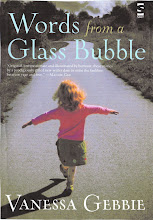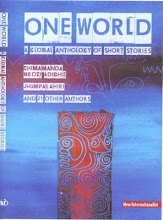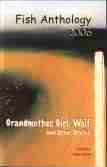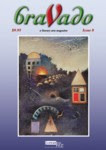There was so much on, and I had an opportunity to stay over for a day or two - so I did. I went to several very good talks. One - on the marriage of science and literature - could have been very good but somehow, it just missed the boat. There should have been a debate!
The event, held in one of the most beautiful rooms in the college, near the Hall and hung with wonderfully ancient glowering portraits, was billed as a look at how far one has to be a stickler for correctness when writing novels with an historic or scientific basis. I was fascinated. I remember only too well the dreadful and upsetting comments left on The New Scientist website when Tania Hershman's short story collection was featured, and how some readers seemed not to understand that fiction was mainly 'making things up'.
The speakers were novelists Ann Lingard (website HERE) and Rebecca Abrams (website HERE), both of whom had new novels to talk about. Ann's novel is contemporary, and has this wonderful title: The Embalmer's Book of Recipes.. You can find a link to it on her website. Rebecca's is called Touching Silence and is based on the physician who discovered the cause of puerperal fever. Ann Lingard was a co-founder or Sci-Talk, a forum encouraging the inclusion of scientists in fiction - one can meet scientists of all disciplines and find out exactly what they do.
The event. It was chaired by Dr Jim Bennett, Director of the Oxford Museum of the History of Science, who professed bemusement at the topic right at the start, and that was not very conducive to a rich debate. The first half hour of an hour long session was taken up with the writers introducing their novels at some length - specifically their research... rather like a book launch. They then gave readings.
There was some talk about their research in conversation with the chair, who continued to look rather bemused as to why he was there. When it got to 'ten minutes to go', and no one had addressed the topic as it was advertised in the programme, I asked the first question. Something like 'At what point does story and character take off from the weight of research? How much fact do you feel necessary to include, and more importantly, can historic or scientific 'fact' be blurred to serve the story?'
Both writers asserted that 'story was everything'. Science was there to 'serve the story'. But then Rebecca Abrams added that in her case, the facts were of vital importance as she was exploring a real man, real medical events which were of vital importance to the history of obstetrics. What fascinated her was the human side of the story. And Ann Lingard looked rather nervously at Dr bennett, and said that if one was incorporating modern science into fiction, one had to be absolutely faithful to the science, or one would be caught out. Older science, she thought, might be used more flexibly within fiction... but Rebecca Abrams disagreed.
In the event, the audience (small--twenty of us or so) had many questions. And the chair bundled them up into a single question at the end.
The man next to me turned to me - I'm writing a historic novel, he said. I am really disappointed. I know no more now than when I came in.
I do, I said. I understand that it is unacceptable in the scientific community for fiction to play with scientific fact. And I dare say it is the same for academic historians.
I bought Rebecca Adam's book. I have read one hundred or so pages. And it is so laden with research, that there is very little real 'character', as far as I can see. I am not 'swept away' by the story at all. Having said that, I am finding the scenario absolutely fascinating. The writing is good, if a little overdone for this reader. But I am also utterly at a loss to see why she decided to write this as a novel, as to me, it feels far closer to biography. Well researched, but top-heavy with real details and explanatory passages that take this reader totally out of any semblance of story.
And that sort of takes me back to exactly where I was before I attended the event. Historical fiction is not an historical treatise, is it? Or does the inclusion of science in historical fiction render the facts sacrosanct, immovable? Likewise, why bring scientists and fiction writers together unless there is an understanding that fiction is IMAGINATION married to fact?
.
W
http://www.scitalk.org.uk/
Saturday, 4 April 2009
Subscribe to:
Post Comments (Atom)




.JPG)























4 comments:
Oh dear, this sounds very disappointing... firstly, because the person chosen to lead the session seems to have been the wrong choice. This sounds like a session I read about on someone's blog a few months ago in London, very similar problem. There, at a talk on science and literature, there were no scientists! Crazy. This sounds like a bit of a waste of time, but Ann Lingard's book sounds good!
Very frustrating.
Hi T... yes, it was disappointing, in that the advertised session didn't fulfil what it said it was going to do. I dont know about Ann L's book... a great title, for sure!
It would have been really valuable to have discussed the issues - rather than have an assumption, never really challenged - that all facts are sacrosanct, as far as science is concerned.
I was going to go to this, v, now I'm glad I didn't.
You're right -- I wish people who have walked this fine balance between science and literature would speak up more. But perhaps not many have that are not in the science fiction category?
Post a Comment